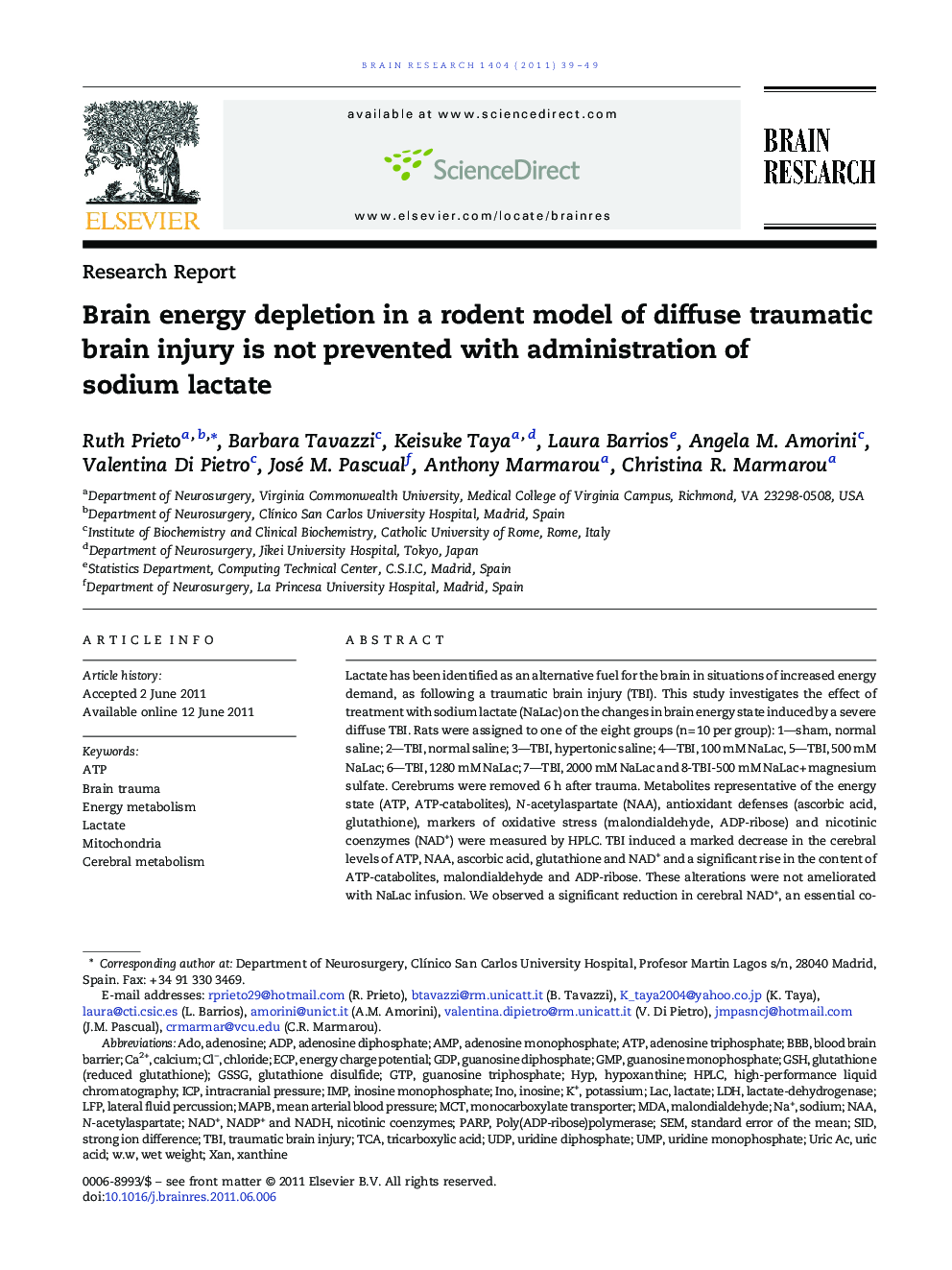| Article ID | Journal | Published Year | Pages | File Type |
|---|---|---|---|---|
| 4325757 | Brain Research | 2011 | 11 Pages |
Lactate has been identified as an alternative fuel for the brain in situations of increased energy demand, as following a traumatic brain injury (TBI). This study investigates the effect of treatment with sodium lactate (NaLac) on the changes in brain energy state induced by a severe diffuse TBI. Rats were assigned to one of the eight groups (n = 10 per group): 1—sham, normal saline; 2—TBI, normal saline; 3—TBI, hypertonic saline; 4—TBI, 100 mM NaLac, 5—TBI, 500 mM NaLac; 6—TBI, 1280 mM NaLac; 7—TBI, 2000 mM NaLac and 8-TBI-500 mM NaLac + magnesium sulfate. Cerebrums were removed 6 h after trauma. Metabolites representative of the energy state (ATP, ATP-catabolites), N-acetylaspartate (NAA), antioxidant defenses (ascorbic acid, glutathione), markers of oxidative stress (malondialdehyde, ADP-ribose) and nicotinic coenzymes (NAD+) were measured by HPLC. TBI induced a marked decrease in the cerebral levels of ATP, NAA, ascorbic acid, glutathione and NAD+ and a significant rise in the content of ATP-catabolites, malondialdehyde and ADP-ribose. These alterations were not ameliorated with NaLac infusion. We observed a significant reduction in cerebral NAD+, an essential co-enzyme for mitochondrial lactate-dehydrogenase that converts lactate into pyruvate and thus replenishes the tricarboxylic acid cycle. These results suggest that the metabolic pathway necessary to consume lactate may be compromised following a severe diffuse TBI in rats.
► Effect of sodium lactate on the cerebral metabolism of rats with a severe diffuse TBI ► No significant changes in any of the metabolites analyzed were observed ► TBI reduced the cerebral NAD+, co-enzyme for mitochondrial lactate-dehydrogenase ► Therefore the metabolic pathway necessary to consume lactate may be non-functional
